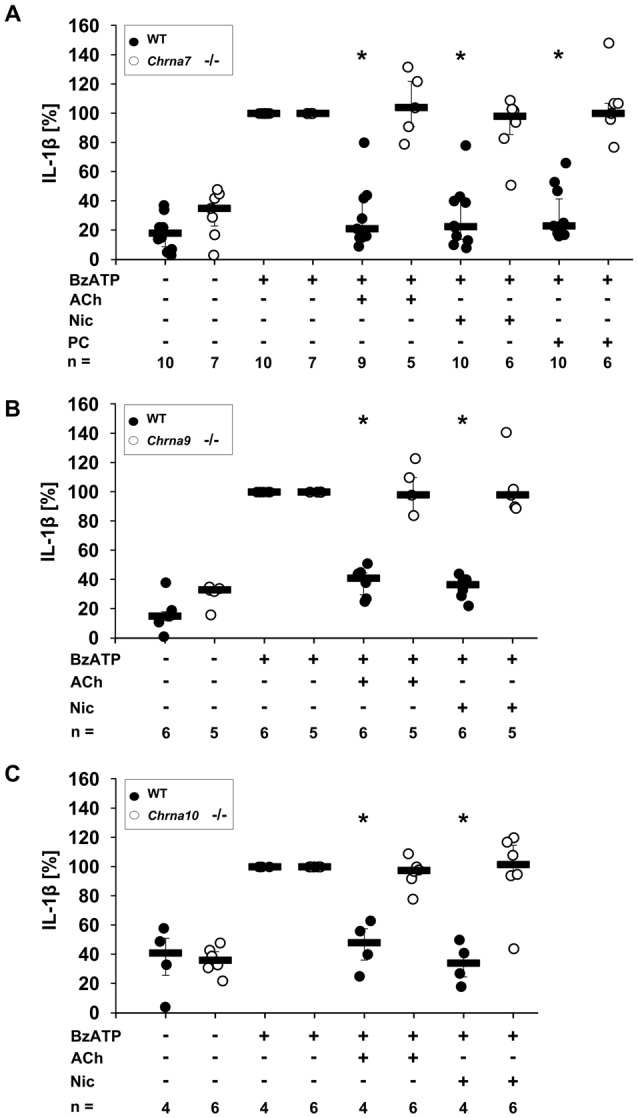Figure 1.

Release of interleukin-1β (IL-1β) by mouse peripheral blood mononuclear cells (PBMCs) from wild-type (WT) mice and mice deficient in Chrna7, Chrna9 or Chrna10. Freshly isolated PBMCs were left untreated or stimulated with 2′(3′)-O-(4-benzoylbenzoyl)adenosine 5′-triphosphate triethylammonium salt (BzATP, 100 μM) for 30 min, in the presence or absence of acetylcholine (ACh, 10 μM) (A), nicotine (Nic, 100 μM) (B) or phosphocholine (PC, 100 μM) (C). BzATP induced the release of IL-1β in PBMCs obtained from all mouse strains. ACh, Nic and PC significantly inhibited the IL-1β release by PBMCs from WT mice (A–C). In contrast, the IL-1β release by PBMCs from mice deficient in Chrna7 was not affected by ACh, Nic and PC (A). Similarly, a deficiency in Chrna9 (B) or Chrna10 (C) abolished the inhibitory effect of ACh and Nic. The IL-1β concentration was determined by ELISA. In each experiment, the IL-1β concentrations obtained after stimulation with BzATP alone were set to 100% and all other values were calculated accordingly. Data are presented as individual data points, bars represent median, whiskers percentiles 25 and 75. *p ≤ 0.05 significantly different from samples where BzATP was given alone, Wilcoxon signed-rank test.
